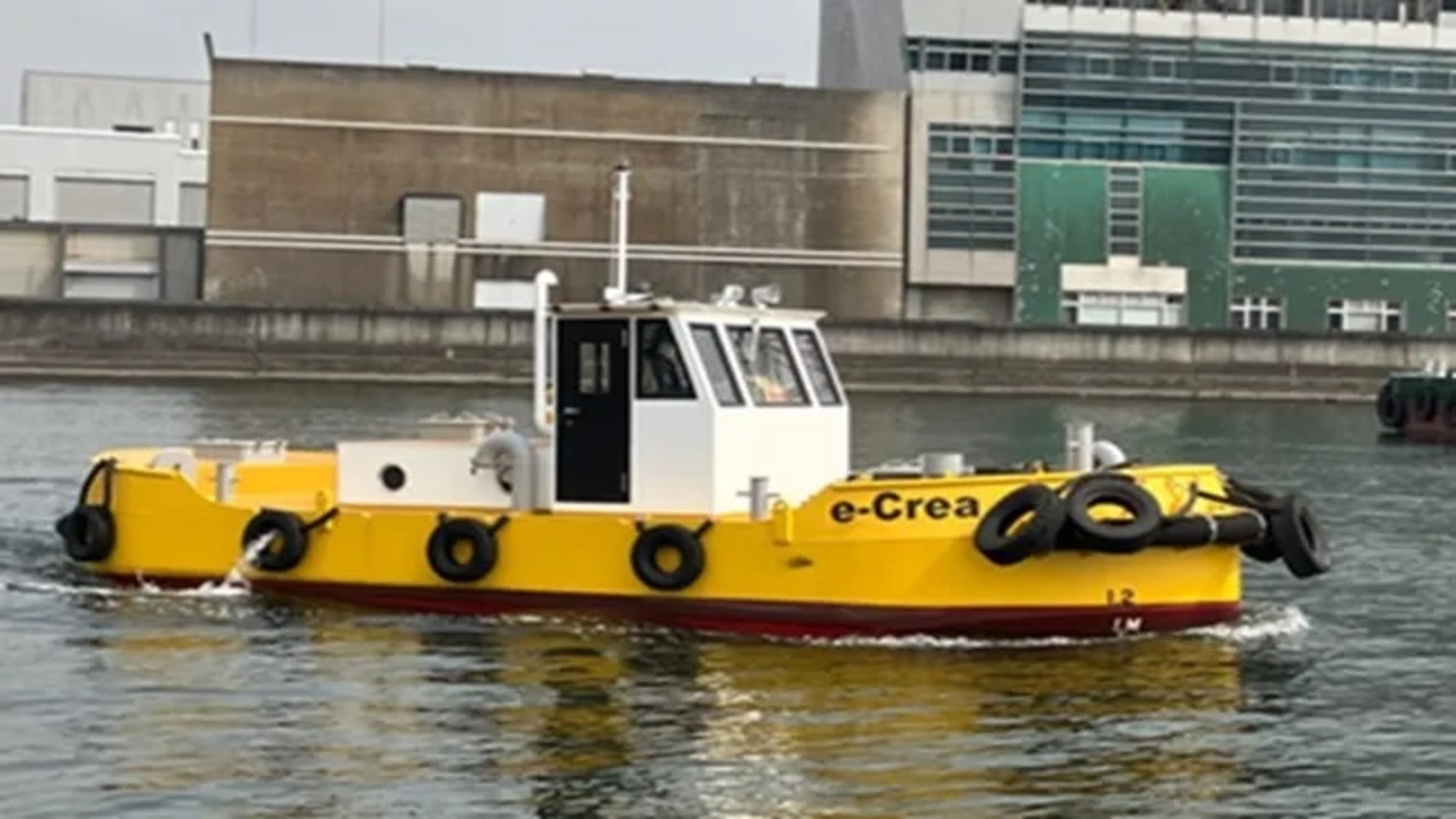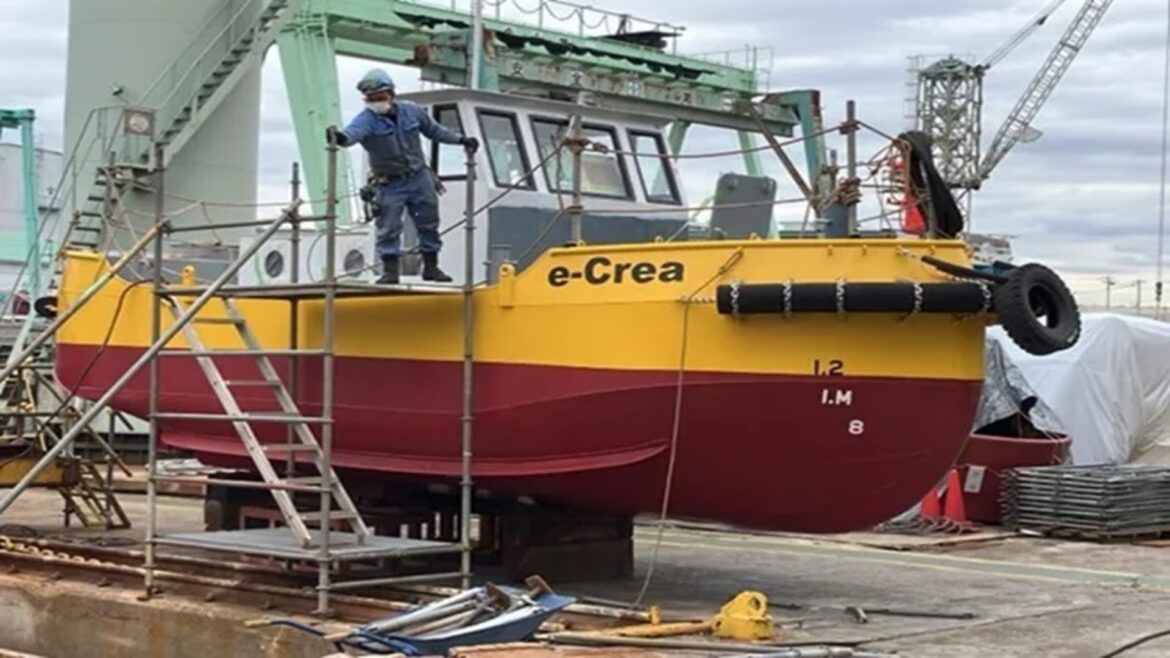Japanese shipping giant Nippon Yusen Kabushiki Kaisha, commonly referred to as NYK Line, has launched the first-ever fully battery-driven work vessel, in a bid to significantly reduce carbon emissions across the maritime industry.
The Tokyo-based company unveiled its newly built vessel, e-Crea, on May 23, a 29-foot-long (nine meters), nearly 10-foot-wide (3 meters) fully electric work ship designed to support tugboat operations at the Koyasu Shipyard while producing zero emissions.
Pronounced ‘éclair’ due to its visual resemblance to the popular French pastry, the vessel was designed without an onboard diesel generator, as part of the company’s broader commitment to bringing new technologies into real-world use and advancing low- and zero-carbon vessel operations.
Constructed by Keihin Dock Co. Ltd., a shipbuilding firm headquartered in Tokyo’s Yokohama, e-Crea is powered exclusively by batteries charged from shore facilities at the shipyard.
Completely carbon-free
Unlike conventional vessels that rely on fossil fuels, the company revealed that e-Crea operates entirely on battery power, produces no carbon emissions, and operates with significantly less onboard noise.
Although designed for a crew of just 14, e-Crea’s compact structure allows it to maneuver easily in confined spaces, making it well-suited for operations within the shipyard, such as tugboat docking, undocking and vessel movement. It is also capable of housing all essential equipment within its compact hull, underscoring its potential as a scalable model for future zero-emission work vessels.
“In response to the growing global demand for decarbonizing maritime transportation, the NYK Group has been actively exploring next-generation fuels, including ammonia and other advanced alternatives,” NKY Line.
 Japan’s first fully battery-powered work vessel launched by NYK, e-Crea.
Japan’s first fully battery-powered work vessel launched by NYK, e-Crea.
Credit: NYK Line
“Fully electric work vessels represent one of the most promising options for sustainable shipping,” NYK continued. The company noted that Keihin Dock, its sole shipbuilding subsidiary, has taken the lead on the project, driving innovation and accelerating the adoption of next-generation maritime technologies.
However, making the vessel fully electric came with challenges. After installing the propulsion system and heavy battery modules, the ship’s weight surpassed initial estimates, requiring adjustments to ensure safe and stable operation. This, in turn, prompted engineers to carefully readjust the internal equipment and reroute cabling to maintain power balance and optimize site.
Stabilizing heat levels
While the vessel’s quiet operation marks another breakthrough, NYK highlighted its approach to heat management and fire safety as a significant achievement, especially in addressing the elevated temperatures generated by the batteries and electric motors.
“To effectively manage heat, the team implemented multi-layered water-cooling systems and integrated air ducts,” the company said in a press release, adding that upgrades to the battery room included fireproofing, hazardous gas protection, and enhanced ventilation to ensure safety during operation. “These measures ensure the vessel upholds robust safety standards.”
The company believes that introducing fully electric propulsion systems to tugboats and work vessels will help accelerate decarbonization efforts not only on individual ships but across the broader maritime and port operations.
NYK officials are confident these initiatives reinforce the company’s commitment to energy-efficient innovations and next-generation solutions aimed at reducing greenhouse gas emissions. Data suggests global carbon dioxide emissions from fossil fuels and industrial activities reached 37.4 billion metric tons last year.


AloJapan.com